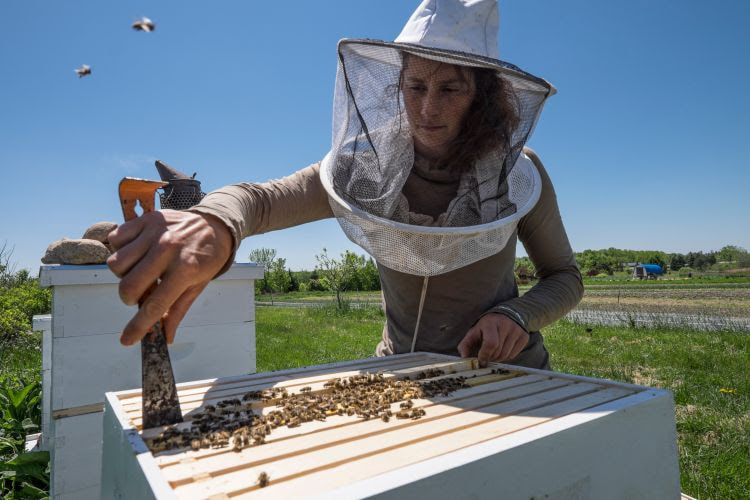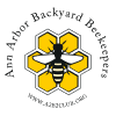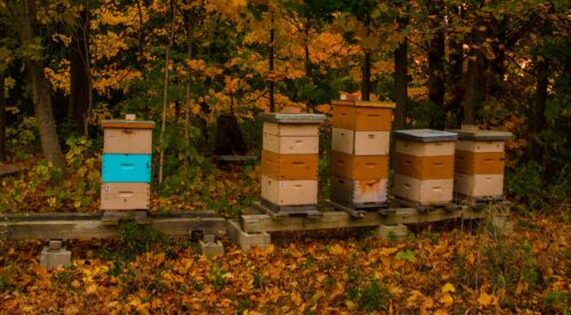 Date: Tuesday, February 13th, 2024 Time: 7:00 pm (Beginner Q&A at 6:30pm) Place: Matthaei Botanical Gardens auditorium or Online As we beekeepers struggle to keep our bees alive and healthy, periodically we need to critically evaluate our ways of doing things. This talk will review old, new, and common-sense methods to keep bees alive, healthy, easy to care for, and- most of all- fun! Speaker: Dr. Lawrence Connor Dr. Lawrence Connor is a Michigan native with a wide range of experiences, including 4-Her beekeeping, bee research and education, commercial queen production, and a lifelong teaching of practical beekeeping skills to thousands of beekeepers. He obtained his Ph.D. from Michigan State University with a dissertation on strawberry pollination. He then became the extension coordinator at OSU, developing the Dadant Starline and Midnite Hybrid program, with the first mass production of artificially inseminated honeybee queens. He purchased Wicwas Press, and has written a series of beekeeping books, including Increase Essentials, Bee Sex Essentials, Queen Rearing Essentials, and most recently, Keeping Bees Alive. He is the publisher and coauthor of Dewey Caron’s Honeybee Biology and Beekeeping. 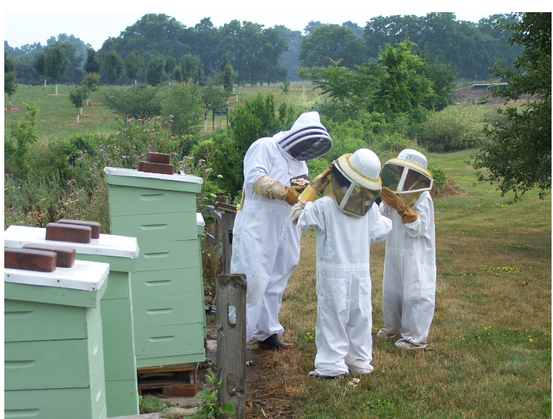 Date: Tuesday, January 9th, 2024 Time: 7:00 pm (Beginner Q&A at 6:30pm) Place: Matthaei Botanical Gardens auditorium or Online A Few Legal Issues for Beekeepers to Consider Description: Clay will discuss honey labeling, Michigan cottage food laws and other regulations that Michigan beekeepers should consider. Speaker: Clay Ottoni Clay Ottoni is a long-time member of the A2B2. He has been an attorney since 1984. Farming for over fifty years, growing a variety of crops and fruit, as well as fruit trees, and sustainably keeping honeybees for pollination, honey, and wax, he is proud he hasn’t purchased new bees or queens for decades! Clay is a Master Gardener, and a volunteer at the Michigan State University Tollgate Education Center. He volunteers at many Michigan beekeeping clubs, including the A2B2, where he assists Jen Haeger with the field work for the Flow Hive Team and works with the Team Sunflower 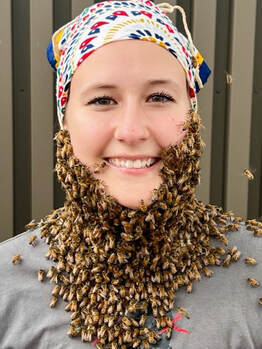 Date: Tuesday, November 14, 2023 Time: 7:00 pm (Beginner Q&A at 6:30pm) Place: Matthaei Botanical Gardens auditorium or Online There are 20,000 species of bees worldwide in all shapes, sizes, and colors. The University of Minnesota Bee Squad’s Brooke Nikkila will teach us how to tell the difference between different bees, wasps, flies, and even moths. We will learn how to support these pollinators in our own backyards. Speaker: Brooke Nikkila Brooke Nikkila manages bees and serves as the Program Manager for the University of Minnesota Bee Squad and their Pollinator Ambassadors Program. She also gives pollinator talks to groups throughout the Twin Cities. Brooke first discovered her interest in bees while doing research at the University of Wisconsin-Stout, where she completed her undergraduate degree in Applied Science with a concentration in Biotechnology, and has been a Bee Squadder since she finished her internship in 2015. Dealing with Deadouts
Date: Tuesday, October 10, 2023 Time: 7:00 pm (Beginner Q&A at 6:15pm) Place: Matthaei Botanical Gardens auditorium or Online Beginner Q&A: 6:15-7:00 pm Description: A mockup of a winterizing set-up that incorporates insights into ventilation and thermoregulation that Bill Hesbach discussed in September will be displayed during the Q&A by our special Q&A guest Presenter: Andrew Mills Andrew Mills is an avid beekeeper and member of A2B2 since 2014. He teaches the German course “The Hidden Life of German Bees” and has traveled extensively throughout Germany to visit hobbyist and commercial beekeepers, as well as honeybee researchers and beekeeping equipment manufacturers. Speaker Presentation: 7:00pm - 9:00pm Speaker Topic: Dealing with Deadouts Description: Dead outs are an unfortunate part of beekeeping. In this talk we will discuss how to clean up a deadout, and how to make decisions on what to do with used equipment. This talk is a mix of science (what we know about disease risk) and management (how do we deal with disease risk in the real world). Presenter: Dr. Meghan MilbrathDr. Meghan Milbrath began working bees over 25 years ago, and now owns and manages The Sand Hill Apiary, a small livestock and queen rearing operation in Munith, Michigan. She studied biology at St. Olaf College in Northfield, MN, and received degrees in public health from Tulane University and the University of Michigan, where she focused on environmental health sciences and disease transmission risk. Meghan worked as a postdoctoral research associate at Michigan State University, studying Nosema disease, and at Swedish agricultural university. She is currently an assistant professor in the Department of Entomology at MSU, where she does honey bee and pollinator research and extension, and is the coordinator of the Michigan Pollinator Initiative. Meghan is active in multiple beekeeping organizations, writes for multiple beekeeping journals, and speaks about bees through the US. She currently runs the Northern Bee Network, a directory and resource site dedicated to supporting queen producers. She is passionate about keeping and promoting healthy bees. 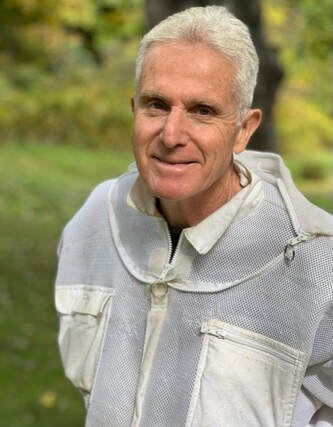 Description: Bill Hesbach will explain how honeybees control internal hive temperature using thermoregulation, and what effect this has on the colony. He will then discuss convection flows inside a colony to better understand ventilation. Finally, the concept of condensing a colony, versus the more common practice of adding ventilation, will be explained. Participants will better understand the role ventilation plays in a natural hive environment and in overwintering measures. Speaker: Bill Hesbach is an Eastern Apicultural Society Certified Master Beekeeper, a graduate of the University of Montana's master beekeeping program, and the President of the Connecticut Beekeepers Association. He operates a sideline bee business, Wing Dance Apiary in Cheshire, CT., producing artisanal raw honey and other natural hive products. Bill is an active member of the Eastern Apicultural Society, where he is part of the Master Beekeeper Certification program. Bill is a regular guest speaker at national beekeeping seminars and was presented with the Distinguished Speaker Award at the 2019 EAS conference. His special interests in beekeeping include bee biology, flight, and the connection between local flora and bee behavior. He's a published author, and his articles on beekeeping appear in The American Bee Journal and Bee Culture magazines. In addition, Bill’s YouTube videos are praised for both content and accessibility. Date: Tuesday, August 8, 2023 Time: 7:00 pm (Beginner Q&A at 6:30pm) Location: Matthaei Botanical Gardens auditorium or Online 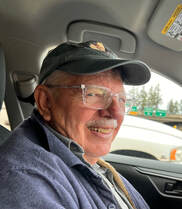 Description: What we do now, in August, - including queen replacement, colony splitting, mite control, feeding in preparation for winter- is anticipatory beekeeping. Anticipatory beekeeping, versus reaction beekeeping, is the better approach toward successful beekeeping. . Speaker: Dr. Dewey M. Caron is Emeritus Professor of Entomology & Wildlife Ecology, at the University of Delaware, & Affiliate Professor in the Department of Horticulture at Oregon State University. He enjoyed professional appointments at Cornell University (1968-70), and acted as entomology chair at the University of Maryland (1970-81) and the University of Delaware (1981-2009). He moved to Portland, Oregon, in retirement, to be closer to his grandchildren. Dr. Caron remains active in bee education at state, local and regional levels, and in master beekeeping programs. He is the author of Honey Bee Biology & Beekeeping, a main textbook used in university and bee association courses. His newest bee book (his 10th), The Complete Bee Handbook, was published by Rockridge Press in 2020. He is a major author of several Honey Bee Health Coalition publications, including Tools for Varroa Management, and is finishing a USDA APHIS Bee MD web program. His books will be available for purchase at the meeting. Date: Tuesday, July 11, 2023 Time: 7:00 pm (Beginner Q&A at 6:30pm) Location: Matthaei Botanical Gardens auditorium or Online 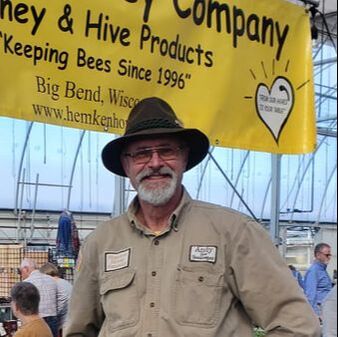 Description: With years of beekeeping experience under his belt, Andy will openly and humorously expound on the litany of mistakes, missteps and miscalculations he has made during his beekeeping adventures. Speaker: Andy Hemken has been a successful beekeeper since 1995, tending as many as 400 hives, selling honey at multiple markets, teaching beekeeping, ergonomics, and farm market classes, and mentoring many beekeepers and mead makers. Andy served as president of the Milwaukee Waukesha Beekeeping Association for 17 years and did a two-year term as the President of the Wisconsin Honey Producers. He is a member of the Beer Barons of Milwaukee, one of the largest beer and mead clubs in the Midwest, and has won 25 awards for mead making. His article Secrets of Beekeeping published in the May 2023 edition of the American Bee Journal. Please join us - our monthly meetings are always free and open to the public! Date: Tue, June 13, 2023 | Time: 7 pm | Location: Auditorium at the Matthaei Botanical Gardens & Online on Zoom 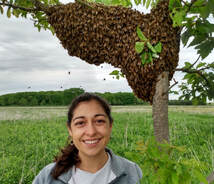 Description: Learn to distinguish between healthy and sick brood and to recognize signs of European Foulbrood, American Foulbrood, chalkbrood, and varroa parasitic mite brood syndrome. Speaker: Ana Heck is Michigan State University's apiculture extension educator. She learned beekeeping in Nicaragua while working with a nonprofit organization that led rural development projects. She later worked with the University of Minnesota Bee Squad and Michigan State University's Department of Entomology before joining Extension. Her role engages beekeepers, growers, pesticide applicators, and home gardeners to improve the health of pollinators. Ana holds a master’s degree in public policy and a graduate minor in entomology from the University of Minnesota. Please join us - our monthly meetings are always free and open to the public! |
Archives
February 2024
Categories
All
|

